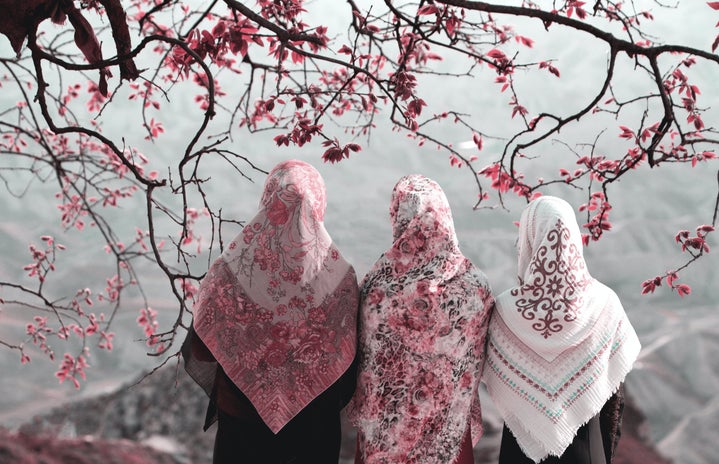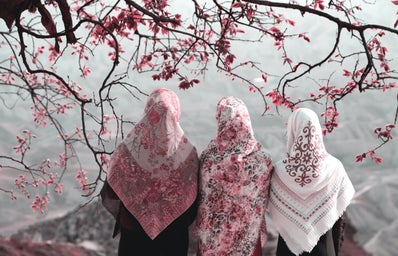In recent years, many young people have spoken up about the damage of hustle culture on their minds. Hustle culture, defined by Good Housekeeping, is “a lifestyle where career has become such a priority in your life or the environment that you work in that other aspects of being human — such as hobbies, family-time and self-care — often take a back seat.” The root of this culture is simply the prioritization of what society tells us we should be prioritizing. Often this includes work, school and the maximization of productivity, resulting in burnout and increased mental illness.
One of the many things I greatly appreciate about my religion of Islam is its ability to shatter the cycle of this hyper-productivity every year. Currently, we are at the end of Ramadan, the ninth month of the Islamic calendar. Ramadan is a time when many Muslims shift their focus towards spirituality and growing closer to God. They fast from sunrise to sunset and worship late into the night.
For me, Ramadan is a huge shift from my daily lifestyle. While it can be a tough adjustment at first, it doesn’t take very long for the annual peace of mind to kick in. One of the traditions includes a long night prayer called Taraweeh, which can often take me up to an hour to complete. I would describe the feeling as a long meditation – a time to disconnect from the world, connecting with God instead. As a student, most of my life is heavily dependent on multitasking – balancing a million assignments, work, extracurriculars and somehow also getting enough sleep. Thus, disconnecting from everything all at once for an extended period of time does wonders for my mental health. For once, my priorities shift towards spiritual self-reflection – a task that never requires you to be “efficient” or “productive.” Rather, it requires just a bit of focus and rewards me with clarity and a significant decline in stress.
Besides the personal connection to spirituality, Ramadan traditions bring us closer to our family and community. About an hour before iftar – the breaking of the fast – all productivity has slowly declined in a Muslim household. After 14 hours of no food or water, the house becomes a comedy show of counting down the time and helping each other cook while fighting the urge to eat up everything. After the sweet release of iftar, my family has a tradition of lying on the floor in recovery. We sip every Pakistani’s beloved chai and jokingly compare it to an IV drip as our brain function slowly returns.
Needless to say, there isn’t much efficiency going on. It is a big change from my pre-Ramadan life of stress eating dinner with one hand while typing away an essay with the other. Despite the struggle of the last few hours of fasting, there is a great comfort, humour and a sense of bonding in going through it with our families. We are reminded that a social and family life is a necessity for us. Ramadan drags everyone to the dinner table and to a time of socialization, bonding and laughing together while forgetting the deadlines for a few hours.
To conclude, Ramadan is a time when hustle culture ceases to exist. As mentioned earlier, at the core, hustle culture is believing that your work or education should be your priority, simply because society said so. Meanwhile, Islam rejects the concept that any worldly duty is more important than the obligations Muslims have towards God. In fact, in Muslim countries, Ramadan means much shorter workdays, less workload and some types of work even shutting down completely! In fact, according to Commisceo Global, productivity drops around 30-50 percent during the month. With spirituality taking priority over worldly efficiency, one of Ramadan’s many positive side effects is its ability to double as a mental health boot camp!


